The best biographies and autobiographies ever written
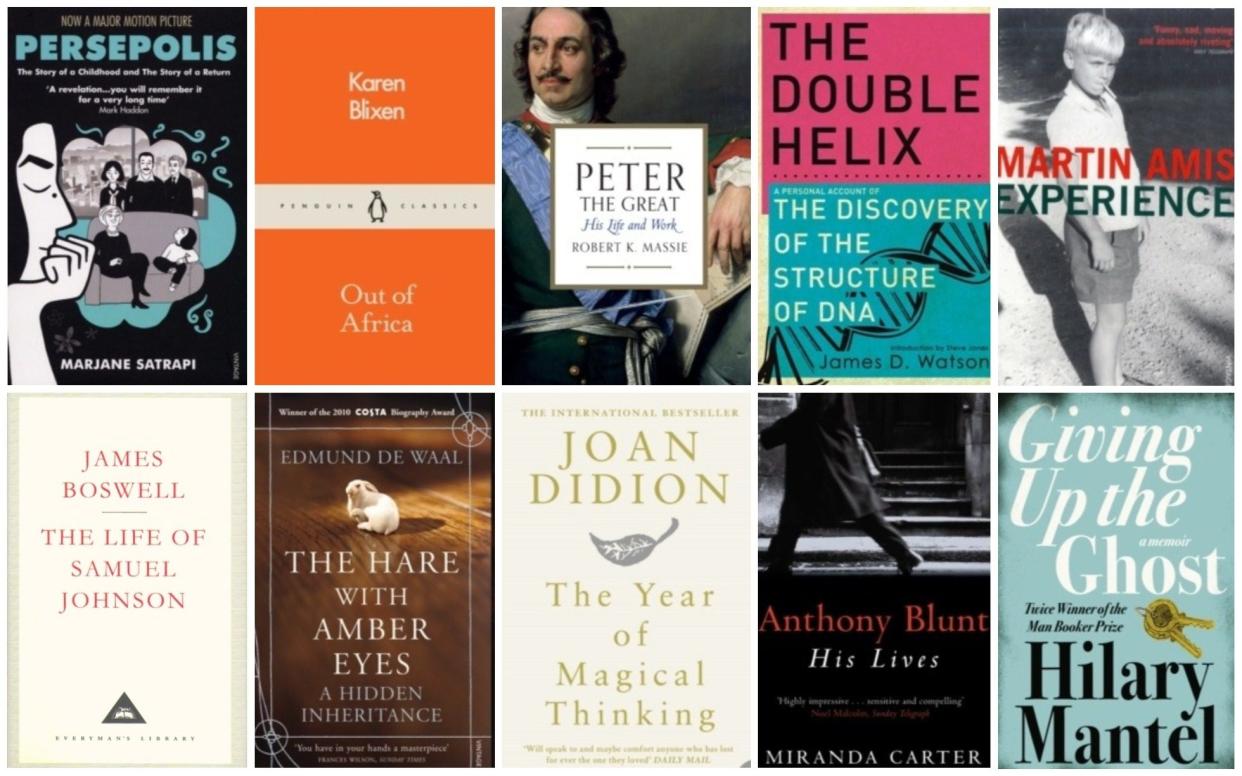

Our critics chose the greatest memoirs and biographies ever written, from the definitive biography of Winston Churchill to a dazzling graphic novel about a young girl's coming-of-age in Iran
Lives of the Caesars by Suetonius (c121AD)
Suetonius was private secretary to the emperor Hadrian and although this group biography of the lives of the 12 Caesars might need an occasional pinch of strict historical salt, it is full of racy decadence and colourful detail – such as Julius Caesar’s semi-baldness, and his use of a comb-over to disguise it. Buy now from the Telegraph Bookshop
Experience by Martin Amis (2000)
Easily Martin Amis’s best book, in which he leaves behind the struggle for effect, stops trying to say anything serious, and in doing so creates something effective and serious about his early life, his relations with his father, the death of his cousin, his various artistic rivalries, and, of course, those teeth. Buy now from the Telegraph Bookshop
A Moveable Feast by Ernest Hemingway (posthumously 1964)
Published three years after his death, this is part road trip, part love letter to Paris, part study of his friendship with characters such as F Scott Fitzgerald, and wholly wonderful. It is a mystery how he remembered a moment of it, though, since he drinks so much alcohol, all the time. Try keeping up with him and you’ll be dead drunk by page four. Buy now from the Telegraph Bookshop
The Life of Samuel Johnson by James Boswell (1791)
Less a biography and more an act of homage, this volume not only provides a close-up of the great lexicographer, in all his terrific wit and travels, it also brings to life an entire era. Often hugely funny – and Boswell omits no details. Buy now from the Telegraph Bookshop
Eminent Victorians by Lytton Strachey (1918)
Written throughout the Great War – and some think thematically influenced by this cataclysm – this pioneering and witty group biography of major Victorians was the first to dissolve the popular image of that era’s morality and thought. Buy now from the Telegraph Bookshop
Goodbye to All That by Robert Graves (1929)
Although Graves recounts the days of his childhood and the early years of his marriage, it is his chronicle of the First World War and his unflinching depiction of life in the trenches – the deadening banality of that horror – that gives this book its enduring force. His comrade Siegfried Sassoon was not happy about some of the descriptions. Buy now from the Telegraph Bookshop
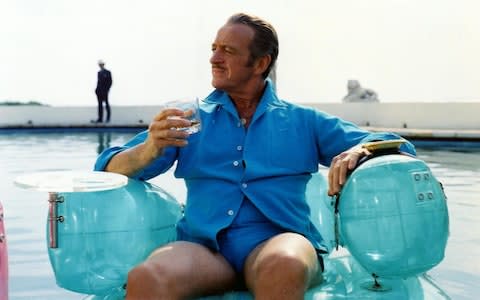
The Moon's a Balloon by David Niven (1972)
These only semi-credible memoirs come from a seemingly happier, simpler time, and deal with the first half of the actor’s life as he made his way from Sandhurst to Hollywood. Packed with great stories, they are irresistibly charming.Buy now from the Telegraph Bookshop
The Rings of Saturn by WG Sebald (1995)
Ostensibly a memoir of Sebald’s walking tour around Suffolk, this extraordinary and profoundly haunting work is also about the echoes in landscape, the long shadows of history and the inescapability of the past – from sea-submerged villages to air force bases from which bombers flew in the war. Buy now from the Telegraph Bookshop
Twelve Years a Slave by Solomon Northup (1853)
A powerful tale of endurance, and a unique historical document. Solomon Northup, a free black man born in New York, was kidnapped and sold into slavery in the American South for 12 years, until he was freed through the efforts of his friends and family. Northup's oral account of his life (dictated to the politician David Wilson) inspired an Oscar-winning 2013 film. Buy now from the Telegraph Bookshop
The Diaries of Samuel Pepys by Samuel Pepys (1660-69)
Probably as close as we can get to a time machine, Pepys famously witnesses the Great Fire of London; but more gripping throughout these hypnotically copious journals is the texture of life and love in 17th-century London. Buy now from the Telegraph Bookshop
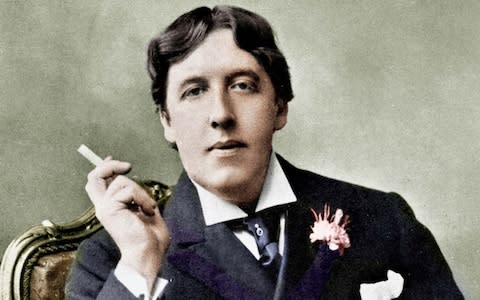
DeProfundis by Oscar Wilde (1897)
The Latin title translates as “from the depths”, and this 50,000-word letter addressed to Lord Alfred Douglas was written while Wilde was in jail. It examines their time together and details Wilde’s spiritual development during his incarceration. Buy now from the Telegraph Bookshop
Diaries (Vol I) by Alan Clark (1993)
Far exceeding anything he might ever have achieved in office, the late Tory MP’s diaries remain a classic of outspoken invective, political plotting, extramarital sex, vividly unpleasant character portraits and a relish-filled panorama of the snakepit that is Parliament. Buy now from the Telegraph Bookshop
The Autobiography of Alice B Toklas by Gertrude Stein (1933)
About as modernist as one can get, this is actually art collector Gertrude Stein’s biography, written in the voice of her lover, Alice B Toklas. Stein was close friends with Picasso – he painted her in the manner of a stone idol – and was right at the centre of the Parisian art and literary vortex. Buy now from the Telegraph Bookshop
Seven Pillars of Wisdom by T E Lawrence (1922)
An account of Lawrence’s experiences during the Arab Revolt of 1917 when he fought the Ottomans with Emir Faisal, capturing Aqaba and winning the Battle of Tafileh. The romanticism of the imagery captured in photographs – Lawrence in full Bedouin dress out in the desert – made him a sensation back in Britain. Buy now from the Telegraph Bookshop
Testament of Youth by Vera Brittain (1933)
In the Great War, Brittain was a Voluntary Aid Detachment nurse. She lost her fiancé on the Western Front, then her brother and then her two closest male friends. She vowed to write their stories, and about her war experiences, as a form of a memorial. Buy now from the Telegraph Bookshop
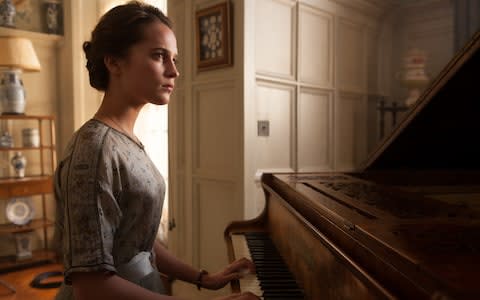
My Family and Other Animals by Gerald Durrell (1956)
This account of naturalist Durrell’s childhood years in Corfu is an unforgettable blend of wonderful human comedy – the foibles of older relatives and family associates as seen through a child’s eyes – plus those same eyes looking in wonder at the abundance and variety of wildlife in the world around. Buy now from the Telegraph Bookshop
Homage to Catalonia by George Orwell (1938)
A memoir of a searingly intense time: Orwell’s months in Spain during the Civil War, when he fought the fascists alongside mountain peasants. Among many unforgettable images – the terror in Barcelona, the moment he was shot in the neck – was the pervasiveness of the lice, and their fondness for trousers. It's even better Orwell's more widely read Down and Out in Paris and London. Buy now from the Telegraph Bookshop
The Diary of a Young Girl by Anne Frank (1947)
The story is so well rehearsed and yet the details still astound; not merely the fear and the claustrophobia, but the different shades of human behaviour and endurance. The nightmarish circumstances of her deportation and death in Bergen-Belsen mean that no matter how familiar her story may feel, no one should ever overlook it. Buy now from the Telegraph Bookshop
I Know Why the Caged Bird Sings by Maya Angelou (1969)
The poet’s hugely influential biography (this was the first volume, dwelling on her early years) was on the US bestseller lists for two years. The story of her childhood is harrowing – the racism of the deep south and the trauma of rape. But it is also to do with the freedom that literacy and poetry brings. Buy now from the Telegraph Bookshop
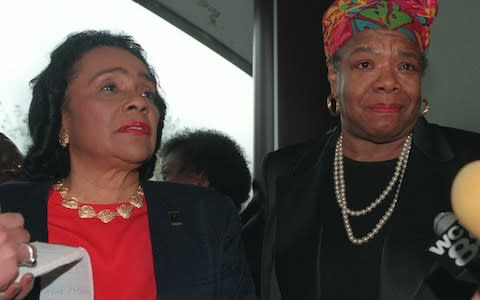
Wild Swans by Jung Chang (1991)
Following the lives of three generations of the Chang family through the turmoil of 20th-century China, this biography is a personal account that casts incandescent light on the lives and experiences of ordinary Chinese people in extraordinary and often evil times. Buy now from the Telegraph Bookshop
Lives of the Most Excellent Painters, Sculptors, and Architects by Giorgio Vasari (1550)
The biographical work that laid the foundations for Renaissance art history, Vasari's study made the reputations of many of the “Old Masters” but he also peppers his “lives” with vivid detail – including allegations that Andrea del Castagno murdered Domenico Veneziano, a claim that is still controversial today. Buy now from the Telegraph Bookshop
Walden by Henry David Thoreau (1854)
Equal parts memoir, philosophical tract and wilderness how-to guide, Thoreau's masterpiece is an Arcadian account of two years pursuing the simple life, living in a cabin on a patch of woodland owned by his friend, the author Ralph Waldo Emerson. Buy now from the Telegraph Bookshop
The Life of Charlotte Brontë by Elizabeth Gaskell (1857)
One great novelist delving into the mind of another. Gaskell may have glossed over a few details of her subject's life, but The Life of Charlotte Brontë – the first published study of the Jane Eyre author's life – remains the benchmark by which her later biographers' efforts are judged. Buy now from the Telegraph Bookshop
Out of Africa by Karen Blixen (1937)
First published under the pseudonym Isak Dinesen, Blixen's poetic, non-linear memories of life on a coffee plantation in British East Africa (now Kenya) caught the imagination of generations of readers. A 1985 film adaptation starring Meryl Streep and Robert Redford won seven Oscars. Buy now from the Telegraph Bookshop
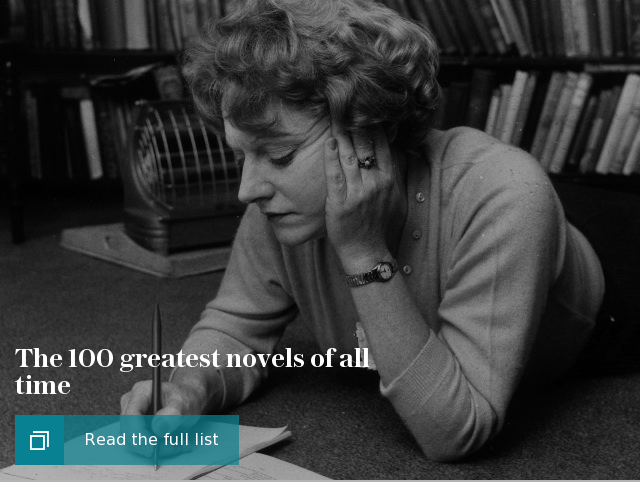
Let Us Now Praise Famous Men by James Agee and Walker Evans (1941)
The lives of impoverished farmers during the Great Depression are captured in this remarkable coming together of word and image. Journalist and poet Agee's unconventional style of reportage finds the perfect mirror in Evans's searing black-and-white photographs. Buy now from the Telegraph Bookshop
Churchill: A Life by Martin Gilbert (1991)
Winston Churchill has had many biographers, but few have matched the dogged determination and meticulous care of Martin Gilbert, whose official biography of the Prime Minister ran to 24 volumes and over nine million words. That may sound intimidating, but fear not: for this 1991 book Gilbert distilled all his research down to a single easily readible volume. Buy now from the Telegraph Bookshop
Six Minutes In May by Nicholas Shakespeare (2017)
While Gilbert covered the breadth of Churchill's career, Nicholas Shakespeare hones in on a single moment: the two-day parliamentary debate that led to him taking over from Neville Chamberlain. The story of how Churchill unexpectedly became prime minister in 1940 has never been told so amusingly, nor in such rich detail. Buy now from the Telegraph Bookshop
The Double Helix by James Watson (1968)
Watson's brief account of how he worked with Francis Crick to map out the structure of DNA – when he was still just 24 years old – not only captures the heady thrill of discovery, but also makes the science behind it readily comprehensible to the average reader. Buy now from the Telegraph Bookshop
The Year of Magical Thinking by Joan Didion (2005)
Five days before the writer John Gregory Dunne suffered a fatal cardiac arrest as he sat down to dinner with his wife, Joan Didion, the couple had been plunged, without preparation, into a nightmare. Their only child, Quintana, had entered a coma induced by septic shock, the end result of what had seemed like a normal winter flu. In his harrowing memoir, Didion's triumph is to show us that artifice – the shaping of prose, the arrangement of memory – need not strip the rawness of lived experience of its power. Buy now from the Telegraph Bookshop
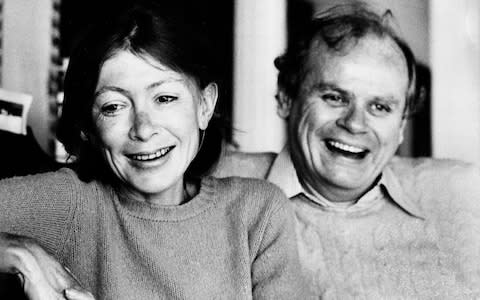
Peter the Great: His Life and World by Robert K Massie (1981)
Massie's scrupulously researched 650-page tome is the definitive study of the great Tsar, highlighting the achievements of the cultural revolution he brought about in Russia. An equally impressive biography of Catherine the Great followed in 2012. Buy now from the Telegraph Bookshop
Maus by Art Spiegelman (1991)
The first graphic novel to win a Pulitzer Prize was inspired by Spiegelman's memories of the harrowing bedtime stories his grandfather would tell him “about life in the old country during the war”. In this magical realist vision of the Holocaust, his Jewish family are drawn as mice, fleeing from Nazi cats. Buy now from the Telegraph Bookshop
A Heartbreaking Work of Staggering Genius by Dave Eggers (2000)
Despite the hubristic title, the American author's bitterly funny memoir is a study in self-deprecation. Blending elements of autobiography and fiction, it follows the author's attempts to care for his younger brother Toph after their parents' deaths. The movie rights were sold for $2 million, but Eggers's unique talent never translates easily to the screen; the film fizzled out in development hell. Buy now from the Telegraph Bookshop
My Struggle by Karl Ove Knausgård (2009-2011)
Knausgård poured his every waking thought – even his most uncomfortable moments – into this epic sequence of six autobiographical novels, which paints a vivid portrait of the Norwegian author's difficult relationship with his family. For its sheer candour and ambition, it is undeniably a modern classic. Buy now from the Telegraph Bookshop
Steve Jobs by Walter Isaacson (2011)
Steve Jobs' official biography is not the uncritical hagiography that many might expect; Jobs emerges as a complex, driven human being who made sacrifices to get to a position where he ran Apple, was on the board of Disney and arguably reinvented digital media. Isaacson traces the entrepreneur's obsessive personality back to his childhood, asking how being put up for adoption shaped his character. Buy now from the Telegraph Bookshop
Persepolis by Marjane Satrapi (2000)
In simple, bold, black-and-white drawings, Satrapi's two-volume graphic novel (later adapted into an acclaimed film) tells the story of her childhood as the daughter of two well-meaning Marxists in revolutionary Iran. Through her six-year-old eyes, and later as a student, she recounts the experience of both the Islamic Revolution and the war with Iraq, and she does so with both seriousness and charm. Buy now from the Telegraph Bookshop
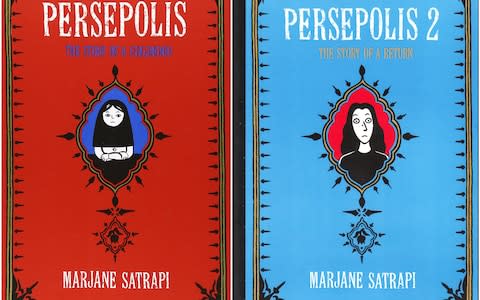
Anthony Blunt: His Lives by Miranda Carter (2001)
When it was revealed in 1979 that Anthony Blunt, the Surveyor of the Queen's Pictures, had been a Soviet secret agent, the news was incredible to most who knew him. In this exactingly researched biography, Miranda Carter shows how completely the facade disguised the truth, examining every aspect of Blunt's life, from schoolboy to disgraced spy. Buy now from the Telegraph Bookshop
Giving up the Ghost by Hilary Mantel (2003)
In her moving but unsentimental memoir, the two-time Booker Prize-winner scrutinises her own history with the same sharp eye that she brought to the life of Thomas Cromwell in her novel Wolf Hall. Without self-pity, Mantel explains how she spent much of her life in crippling pain due to her undiagnosed endometriosis. Buy now from the Telegraph Bookshop
A Certain Idea of France: The Life of Charles de Gaulle by Julian Jackson (2018)
With scholarship of the highest class, this outstanding biography presents with utter clarity the life of a man who, he concludes, for all his faults, "saved the honour of France". De Gaulle did that in his supreme moment in June 1940, when he caught a ride on a plane to England as the Wehrmacht tore through France, and convinced Churchill to adopt him as a symbol of France's continuing fight after Pétain had capitulated to the Nazis. Buy now from the Telegraph Bookshop
The Hare with the Amber Eyes by Edmund de Waal (2010)
The renowned potter retraces his family history through the story of his uncle Iggy's collection of Japanese netsuke figures, following the antique model hare of the title down a rabbit-hole of personal history that leads him to Odessa, Paris and Nazi-occupied Vienna. Buy now from the Telegraph Bookshop
The Quantum Astrologer’s Handbook by Michael Brooks (2017)
This strange and beautiful mixture of biography and physics describes how Jerome Cardano, an obscure 16th-century doctor and mathematician, invented modern probability theory. In a literary flourish, Brooks writes as if he is speaking directly to Cardano, visiting him in a jail-cell where he is being held by the Inquisition. Buy now from the Telegraph Bookshop

